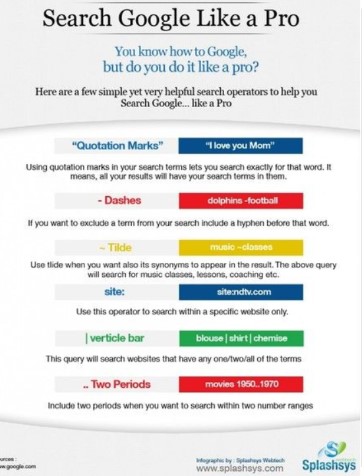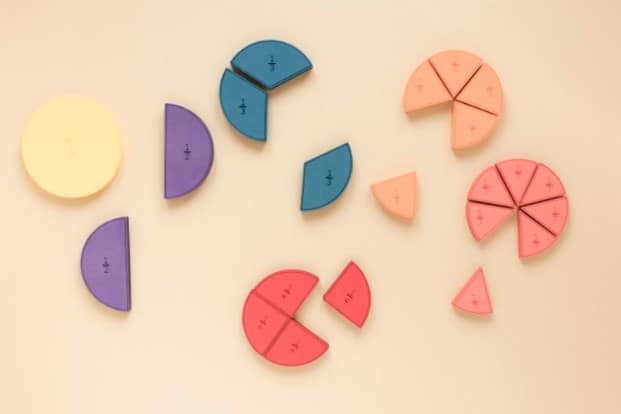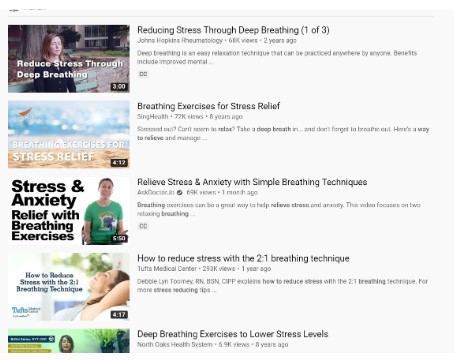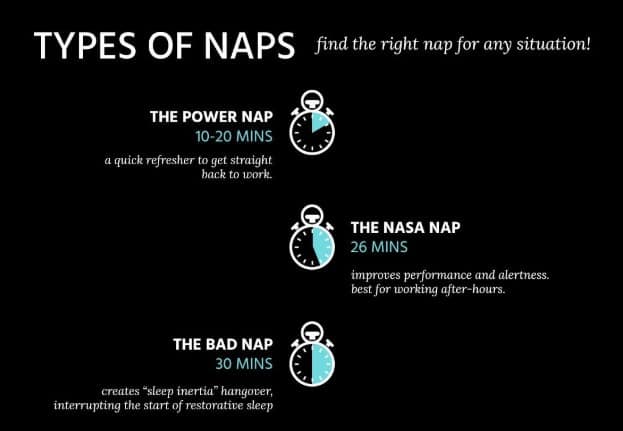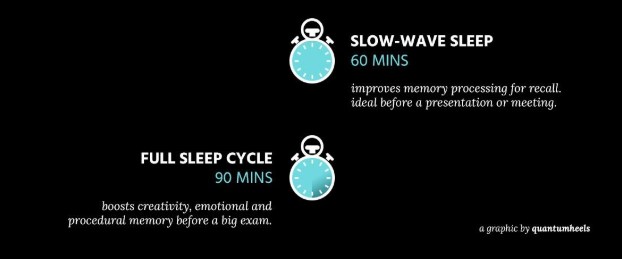How To Study For A Test Effectively: 25 Secrets For Success
Studying for exams can call for drastic measures, especially when you’re cramming too many things in the shortest time possible.
Staying awake for more than 12 hours is one solution, right? How about drinking a few bottles of energy drinks or several cups of coffee to stay awake?
While such strategies may help you pull through, they’re not entirely healthy. I want to show you a healthier way to ace your exams, including getting enough sleep for better focus and concentration.
No more staying up until 2 A.M. No more hitting the snooze button. Who says you can’t learn how to ace the finals without feeling like a zombie?
These 25 study tips for exams should break the walking-dead cycle for you during finals week.
Tips to Always Remember
1. Stay Hydrated
Energy drinks don’t count. These highly sugar-based concoctions may leave a better impression on your tongue, but towards your performance, they can have an adverse effect. Energy or sugary drinks only make you feel “energized” for about an hour or two until…you crash. These also dehydrate your body and slow down your brain function.
If you want to stay productive and go through the night feeling like you’re performing at your best, make it a habit to drink water as often as possible.
2. Eat Breakfast at the Start of Your Day
For late-risers, this might be harder for you to do, but if you’re serious about studying to ace the exams, then it’s important to start your day with a light meal at the very least.
Remember, your body needs fuel and an empty stomach will cause you to think slower and feel sluggish all day.
3. Study at a Pace You’re Comfortable With
The best way to study for exams is to remember to always go at your own pace, or in a route that lets you perform your best. You don’t have to compete with the smartest person in the class or anyone at all. Stick to your strengths and assess your weaknesses.
If you want to learn how to ace an exam, stop thinking like everyone else. Start thinking the way you should and be in control.
4. Eat the Right Foods
For the week or the days you’ll spend most of your time studying for your exams, you should eat a healthy and balanced diet. Highly processed food or refined sugar foods can impair your cognitive function, learning capacity, and memory.
Therefore, go for tuna, sardines, almonds or nuts, strawberries, blueberries, broccoli, and even dark chocolate! These are great sources of energy to fuel your day.
5. Don’t Multitask
Multitasking is a myth. Under an MRI, attempting to multitask would reveal how your brain struggles between different tasks. Imagine having to write an email while answering someone on the phone. It’s impossible to do.
The best way to study for exams is to focus on studying and eliminate any distractions, such as social media, access to phones, working in a noisy space, etc. Any attempt to multitask will result in reduced information retention and comprehension.
6. Set Aside a Break Schedule for Every Study Session
Hard work can go a long way, but if it’s at the cost of your health and places your body under constant stress, it’s not effective anymore. Give your body time to recover and recharge after every 45 minutes to an hour of studying. This helps the digestion process and keeps your brain from overloading.
The secret on how to ace the exams is not studying too hard and too long. It’s doing it right while giving your brain time to cool down and re-group.
Study Hacks to Keep You Motivated
7. Listening to Music
There’s music for every mood, setting, and occasion including studying. Some people find jazz soothing while studying.
Surprisingly, some people listen to pop music and still perform at their best. Listening to music activates areas in your brain that allow you to pay more attention.
Classical music is a popular choice since many swear by its positive effects. You might want to also try binaural beats that are highly effective to keep you motivated.
Free-binaural-beats (1) provides access to various beats on their website.
8. Add Some Humor in Your Learning Experience
Using humor might sound counterproductive if you want to learn how to study for exams effectively.
You’d be surprised, though. Humor stimulates the learning experience through improved engagement, reduced stress, and enhanced motivation. It also becomes easier for you to remember certain lessons associated with humor.
The page Grammar Errors on Pinterest (2) uses humor to teach various lessons about grammar.
Who doesn’t love a good laugh?
9. Use a Visualization Technique
Did you know that your brain can’t actually tell the difference between what’s real and what’s fantasy? Visualization uses this concept to bring fantasy into reality and make it an actual fact of your life.
It gives you a “superpower” that allows you to create and achieve your dream goals. As a result, you feel empowered and motivated to pursue your preferred future or dream.
Do you want to learn how to ace a test or how to pass a final exam? Visualize it. Imagine yourself celebrating because you got a high score. Imagine how that feels like and revel in it. The more you practice it, this will accelerate your progress.
Here is a video showing 5 visualization techniques you can use:
10. Switch Up Your Environment
A change in scenery can help set the right tone and mood for studying.
Going outdoors helps people concentrate and provides more motivation to study as opposed to being holed up in your room.
If you’re more comfortable studying indoors, however, re-arrange the furniture in your room or even clean out your desk. You’ll find your mind more at ease and have a higher drive to study afterward.
You can find many productivity setups online (3) to use as a guide or reference in helping you get those creative juices and enthusiasm for studying going.
Use These Tips & Hacks to Help You Learn More Effectively
11. Apply the 80/20 rule
Have you ever studied so hard for an exam only to realize 10% of what you studied only came out in the exam? This is the difference between studying smart and studying hard.
This is what the 80/20 rule is about. Spend 80% of your time studying 20% of the concepts and lessons that are most important. Use learning strategies that give you the biggest returns and results for the time you spend in a study session.
Here is a video showing how you can put this into action:
12. Do a few practice tests
For a more technical and disciplined approach on how to study for exams, practice tests are a great way to get feedback and to improve your understanding in a specific subject area.
Practice tests improve memory retention a lot more compared to re-reading the same text repeatedly. You can test yourself by taking practice exams in your book, writing what you learned, or asking yourself questions after reading a chapter.
13. Assess How You Learn Best
If you’re a night owl like me, you know you perform best late at night or after 5 pm, to say the least. Some perform best early in the morning around 5 or 6 am, while others prefer midday around 1 pm to 3 pm.
Others prefer total silence, using white noise, or playing light music on the side. Everyone has their own unique way of studying.
Figure out which study technique helps you learn the most and is the most effective for you. This is a critical component of how to ace your finals or exams.
14. Watch Recorded Lectures or… YouTube It
Let’s be honest. Sometimes, or maybe even most of the time, reading text continually can bore you out. At times, it could also be the topic itself that’s boring.
You may not exactly learn best through reading, so why not try learning through video?
Mathematics, for instance, is hard when you rely on reading text alone.
Awhile back, I stumbled on a YouTube channel that helped me learn Math concepts a lot easier than my textbook. PatrickJMT helped me through some serious times like Calculus, Advanced Algebra, you name it.
Here’s a sample video if you’d like to see this genius in action:
15. Use Google The Right Way
Here, I thought all you had to do was type in the words and hit “Enter.” That’s how search engines work, right?
Kid stuff, really. Turns out, there’s a right way to use Google. If you learn how to do it right, this can narrow down your search by A LOT.
Rather than having to click on different site links and leave unsatisfied until you hit the right source, this can help you save a lot of time when you’re looking for extra resource material.
16. Break Your Lesson into Bite-Sized Pieces
Breaking the lesson into smaller chunks improves how well you absorb and digest the lesson. Don’t try to cram your way into acing the exam by jamming information into your brain. This never works 100% of the time.
If you want to learn how to pass the finals, don’t cram. Doing so will only add extra pressure and anxiety. Take it one step at a time. Divide the lesson into chunks. Effective studying is not how much you can read, it’s how much you understand.
17. Get Creative Using Mental Associations
You probably remember more GOT (Game of Thrones) characters than the number of elements in the periodic table.
Is that a bad thing? That depends on how you use it.
With mental associations, you could use what your brain already stored and associate this with what you’re trying to learn or absorb.
Maybe what you read in your Chemistry textbook reminded you of color, shape, or character. Use this to help you remember concepts, terms, and a long list of items.
You could also try mind mapping (4) to help you connect different ideas and understand how they connect or associate with one another.
This video will explain what mind mapping is and how to create your own:
18. Give Khan Academy a Try
Khan Academy is one of the biggest course platforms.
You can learn a variety of content material that goes as deep as studying for the SAT, MCAT, GMAT, etc. and it’s all for free.
The lessons come in both video and print material, which also uses illustrations, graphs, and images to make learning easier. You’ll find many positive reviews online about how Khan Academy helping students achieve high scores and even acing their exams.
19. Go for Online Study Apps
Don’t just stick to print material for taking a practice or diagnostic tests. I can help you for exam finals by sharing with you this tip: branch out and diversify your resource options.
What I mean by this is scouring the internet for any tools or apps that can help you learn better and improve your engagement. With a growing number of online tools and apps, some of the best include Quizlet (5), Brainscape (6), and Kahoot! (7).
Tips That Keep Your A+ Game in Great Shape
20. Meditate
When you’re studying for your exams, you’ll run into a lot of stressful caves and fear-inducing holes. Taking deep breaths and meditation can calm you down and ease the stress, fear, and anxiety that you go through.
One of the best resources to help you with this is using the app Calm (8). You’ll also find a lot of exercises on YouTube:
21. Go for a Power Nap
Never underestimate the power of sleep and rest, even if it’s for a few minutes. The shortest you can go for is 10-20 minutes. This is enough to refresh your brain and help you get back on track. Longer hours lasting for 1 hour can improve memory processing.
For a guide on power naps and their effects, you can refer to the image below:
22. Exercise
Do you know how gym rats say to never skip leg day? Well, for achievers like you, don’t skip exercising when studying for exams. If you can, include it daily.
You don’t have to be dripping sweat all the time. Just a few exercises to get your heart pumping is more than adequate. Exercising regularly improves your brain’s processing power, concentration, and sharpness.
23. Give Yourself a Treat
Don’t hold yourself back on this one.
Hard work deserves credit, and you get to decide how you want to receive the credit for a good study session. Treating yourself with a sweet prize can motivate & empower you to get through the remaining minutes of your time when you feel like calling it a day.
Tips That Involve Friends or Colleagues
24. Teach The Lesson to a Friend or Colleague
Teaching a friend or colleague is one way to assess how well you understood the concept you studied. If you can explain the concept to your friend easily and he/she understands it, it’s a positive sign that you understood the concept well.
If you can’t, then hit pause. Take a step back and reflect on which part of your explanation lacked clarity, has gaps and requires improvement.
Use this to identify your study progress and how to improve your routine.
25. Jump into Collaborative Learning
Self-study isn’t for everyone. Some people love to isolate themselves and drown out all the distractions and noise for maximum effectiveness.
Others prefer to study in packs. Maybe this is you. Maybe this is what you need. A study group you can be around that motivates you and whom you can also learn from through discussions.
Studying in groups gives you access to second opinion and feedback that can broaden your perspective and helps you understand the context instead of pure memorization.
FAQs
Finally, take deep breaths and condition yourself. You can also plan for a treat after the exam to give you something to look forward to afterward.
Some Advice Before You Go…
There is no single-best or ultimate solution to ace your test. To get a high score, you must invest a good balance of hard work, commitment, and rest.
Don’t just stick to one technique or solution. Step outside your comfort zone and don’t be afraid to experiment or try new ways that may lead to even better results.
If you’ve tried one or two of the tips & hacks mentioned in this review, let us know how it impacted your study routine in the comments section below.
References
- https://free-binaural-beats.com/#browse
- https://www.pinterest.ph/mrsorman/grammar-errors/
- https://www.pinterest.ph/eljonas313/productivity-setups/
- https://www.mindmup.com/
- https://quizlet.com/
- https://www.brainscape.com/
- https://kahoot.com/
- https://www.calm.com/




















